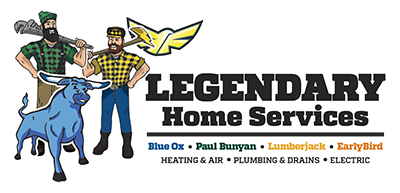Your HVAC system is an essential part of your home, offering you clean air, a pleasant temperature, and comfort in your house. Anytime you need heating and air conditioning repair, it can feel confusing and complicated. Do you really need repair or a full replacement of the unit? Are your utility bills too high?
Today, we outline the top eight heating and air conditioning repair questions HVAC technicians get from customers. Hopefully, this will give you some answers and leave you feeling more confident before you book your next service appointment.
1. How Often Should I Replace My Air Filter?
Generally speaking, you should replace your air filter once a month. However, inspect your filter more frequently and make a judgment call. As soon as you notice that the filter is clogged or darkened, it’s time for a change. After some time, you’ll get an understanding of how frequently your HVAC unit requires a replacement.
Regularly replacing your air filter is very important. A clogged and dirty air filter diminishes airflow and makes your HVAC system work less efficiently. This leads to an increase in utility bills.
2. How Often Should I Schedule HVAC Maintenance?
If you notice an issue, you should schedule heating and air conditioning repair immediately. Otherwise, it’s recommended you schedule regular HVAC maintenance before each cooling and heating season. A technician will come by to inspect and tune up your system to ensure it works well for the upcoming season.
The older your appliances, the more frequent the maintenance checks should be. As your unit ages, the technician will start to look for damages and breaks, to spot when it’s time for an appliance replacement.
3. Should I Repair or Replace My HVAC System?
When someone calls for heating and air conditioning repair, they rarely expect it to turn into a replacement project. And yet, our HVAC systems can’t last forever.
When you book your heating and air conditioning repair appointment, you can ask the technician to inspect the unit and offer their opinion on the best option. The professional will consider several factors, including:
- The age of the system
- How expensive the repair will be
- Low-energy efficiency rating and increasing utility bills
- Compromised indoor comfort
- How long the owner plans to live in the home
You can also ask the technician to provide a quote for both options: repair and replacement. This will allow you to make a more informed decision on what’s best for you.
4. How Can I Lower My Utility Bills?
As your household uses more fuel or electricity, your utility bill will increase. If you want to reduce your utility bills, you’ll need to reduce the energy your home uses. Today’s HVAC systems come with energy ratings that show just how efficient each model is. If you’re past heating and air conditioning repair and looking at replacements, look for energy-efficient units.
If you’re in the repairing (not replacing) stage, the following factors can help to reduce your utility bills:
- Regular air filter replacements
- Routine HVAC maintenance
- Ductwork
- Thermostat or control system settings
- Fixing drafty windows and doors
- Programmable thermostats
5. Should Outdoor Units Be Covered in the Winter?
Instinct might tell you that you need to cover your outdoor units in the winter to protect them from the harsh weather. In reality, this isn’t the case. An air conditioner might accidentally be turned on without the knowing/remembering that the outdoor unit is covered. If this happens, there is the potential that your condenser and its internal components will be damaged.
Your outdoor condenser was built to withstand the elements and doesn’t need to be covered.
6. What Is SEER?
We mentioned earlier that HVAC units have energy efficiency ratings. For aid conditioning equipment, the units are rated by the Seasonal Energy Efficiency Rating (SEER). The higher the SEER rating, the more efficient the unit is. This equals lower utility bills!
New air conditioning models must have at least a 13.0 SEER rating. Some of the most impressive units have a SEER rating as high as 21.0. If you can afford it, try to get an air conditioner with as high of a SEER rating as possible.
7. Should a Thermostat Be On ‘Auto’ or ‘On’?
Generally speaking, your thermostat should be on ‘auto.’ The auto setting ensures the fan only operates when the temperature needs it. It’s the most efficient setting.
8. What Size Furnace and Air Conditioning Unit Should I Get?
Often, owners think when it comes to HVAC units, the bigger is better. However, this isn’t always the case. It’s more like Goldilocks; you want something that’s not too big and not too small.
If you purchase a furnace that is too big for your home, it will heat up your home quickly and then shut off. A frequent on-and-off cycle increases energy usage and can decrease the lifespan of your furnace.
Alternatively, buying an air conditioner or furnace that is too small will mean the appliance needs to constantly run to keep up with the demand. This will result in huge utility bills and the lifespan of your appliances being reduced.
If you call for heating and air conditioning repair and find out you need a replacement instead, ask the technician for their advice. They will have a look around your home, ask some usage questions, and advise what size HVAC unit you probably need.
Heating and Air Conditioning Repair in St. Paul, MN with Blue Ox Heating & Air
Is your question not on this list? Then Blue Ox Heating & Air in St. Paul, MN, will be more than happy to answer any burning HVAC questions you may have.
If you need heating and air conditioning repair in St. Paul, MN, you can trust Blue Ox Heating & Air to be there for you. We provide HVAC installations, repairs, and maintenance. We also offer services in zone systems, garage cooling, heat pumps, ductless systems, thermostats, and air quality work. Contact us today to book an HVAC appointment that is quick and contactless.


